You can trust VideoGamer. Our team of gaming experts spend hours testing and reviewing the latest games, to ensure you're reading the most comprehensive guide possible. Rest assured, all imagery and advice is unique and original. Check out how we test and review games here
We’ve made a list of PlayStation console generations and models that have been released since the first PlayStation console back in 1994. PlayStation is a gaming console brand released and maintained by its parent company Sony. Primarily an electronics company, Sony first entered the gaming console business in the mid-nineties and has since dominated the industry with PlayStation 2 taking the title of best-selling gaming console of all time. We’ll look at PlayStation’s history, focusing on how it changed over the years to resemble the brand we know today.
List of PlayStation consoles and release dates
There are a total of five major consoles from PlayStation since its genesis, as you can see from the list below:
- PlayStation (1994)
- PS One (2000)
- PlayStation 2 (2000)
- PlayStation 2 Slim (2004)
- PlayStation Portable (2004)
- PlayStation 3 (2006)
- PlayStation 3 Slim (2009)
- PlayStation Vita (2011)
- PlayStation 3 Super Slim (2012)
- PlayStation 4 (2013)
- PlayStation 4 Slim (2016)
- PlayStation 4 Pro (2016)
- PlayStation 5 (2020)
- PlayStation 5 Digital Edition (2020)
- PlayStation 5 Pro (2024)
Let’s look at each PlayStation, and the impact on the gaming scene their release had in their respective generations.
PlayStation (1994)
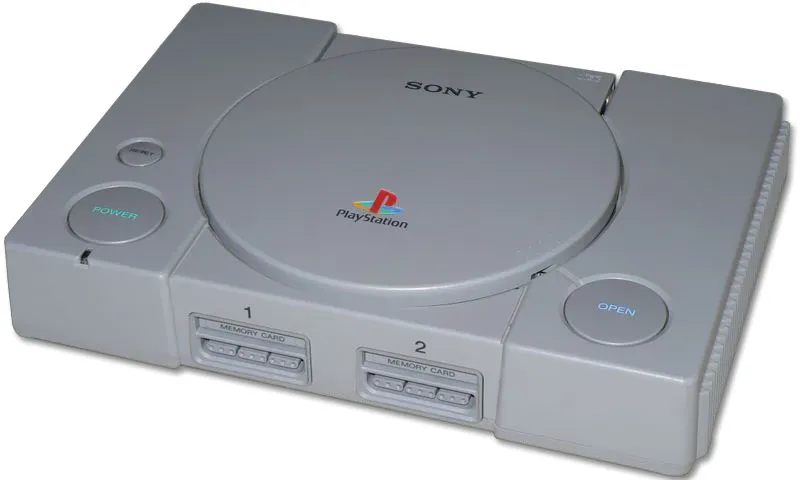
- PlayStation Release Date: December 1994
- Generation: Fifth Generation
- Status: Discontinued
- Release Price: $299
- Units Sold: 102.49 million units
This was the first generation of PlayStation, released in Japan originally to critical acclaim. It was part of the fifth generation of videogame consoles and marked a shift into a new era of console gaming. Original titles you could play included Twisted Metal and Ridge Racer.
PlayStation One (2000)
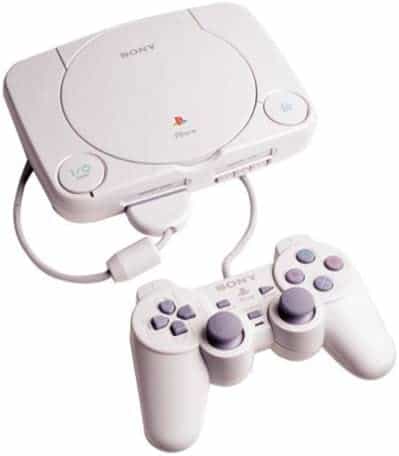
- PlayStation One Release Date: September 2000
- Generation: Fifth Generation
- Status: Discontinued
- Release Price: $299
- Units Sold: 28.15 million units
PS One emerged as the cheaper alternative to PS2. It was essentially a more compact version of the original console that included user interface tweaks and a slightly different design.
PlayStation 2 (2000)
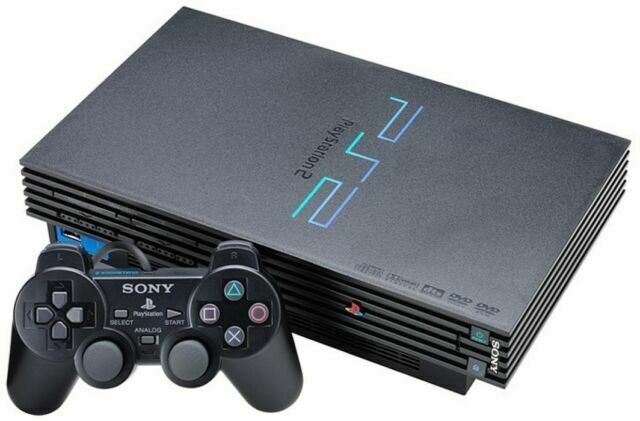
- PlayStation 2 Release Date: March 2000
- Generation: Sixth Generation
- Status: Discontinued
- Release Price: $299
- Units Sold: 158 million units
The first PlayStation 2 was released in Japan and was noticeably larger than the original PlayStation. It proved more popular too with backward compatibility with the original PlayStation games.
The console itself was a record breaker as the fastest console to sell 100 million units. It boasted a host of exclusive games that helped boost Sony’s reputation amongst gamers, including popular titles like God of War. The fact that it could double as a DVD player also made it an attractive option for those value-conscious consumers.
PlayStation 2 Slim (2004)
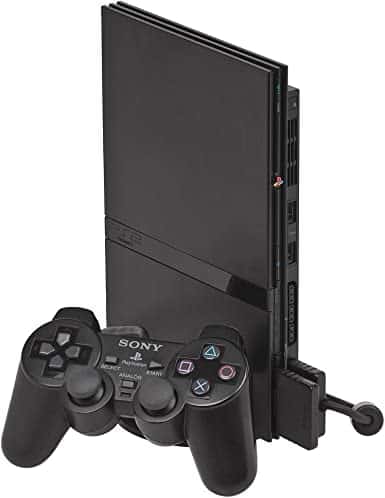
- PlayStation 2 Slim Release Date: October 2004
- Generation: Sixth Generation
- Status: Discontinued
- Release Price: $299
The PlayStation 2 Slim is a lighter and slimmer version of the PlayStation 2. It’s also quieter and features a built-in Ethernet port. This means you can play certain multiplayer games online.
Overall, it inevitably made a smaller splash than the original PS2, but was still a welcome addition to the PlayStation family.
PlayStation Portable (2004)

- PSP Release Date: December 2004
- Generation: Seventh Generation
- Status: Discontinued
- Release Price: $249.99
- Units sold: 80.79 million (as of July, 2022)
The PlayStation Portable (PSP) was Sony’s answer to the GameBoy and Nintendo DS. Interestingly, it forewent the split-screen design opted for by its competitors and instead opted for a main console with side control design that looks very similar to modern iterations of handheld consoles, for example the Steam Deck. The PlayStation Portable was able to connect to the internet, contained the capacity for audio and video playback, allowing users to watch videos on it, and also had access to a vast library of games.
PlayStation 3 (2006)
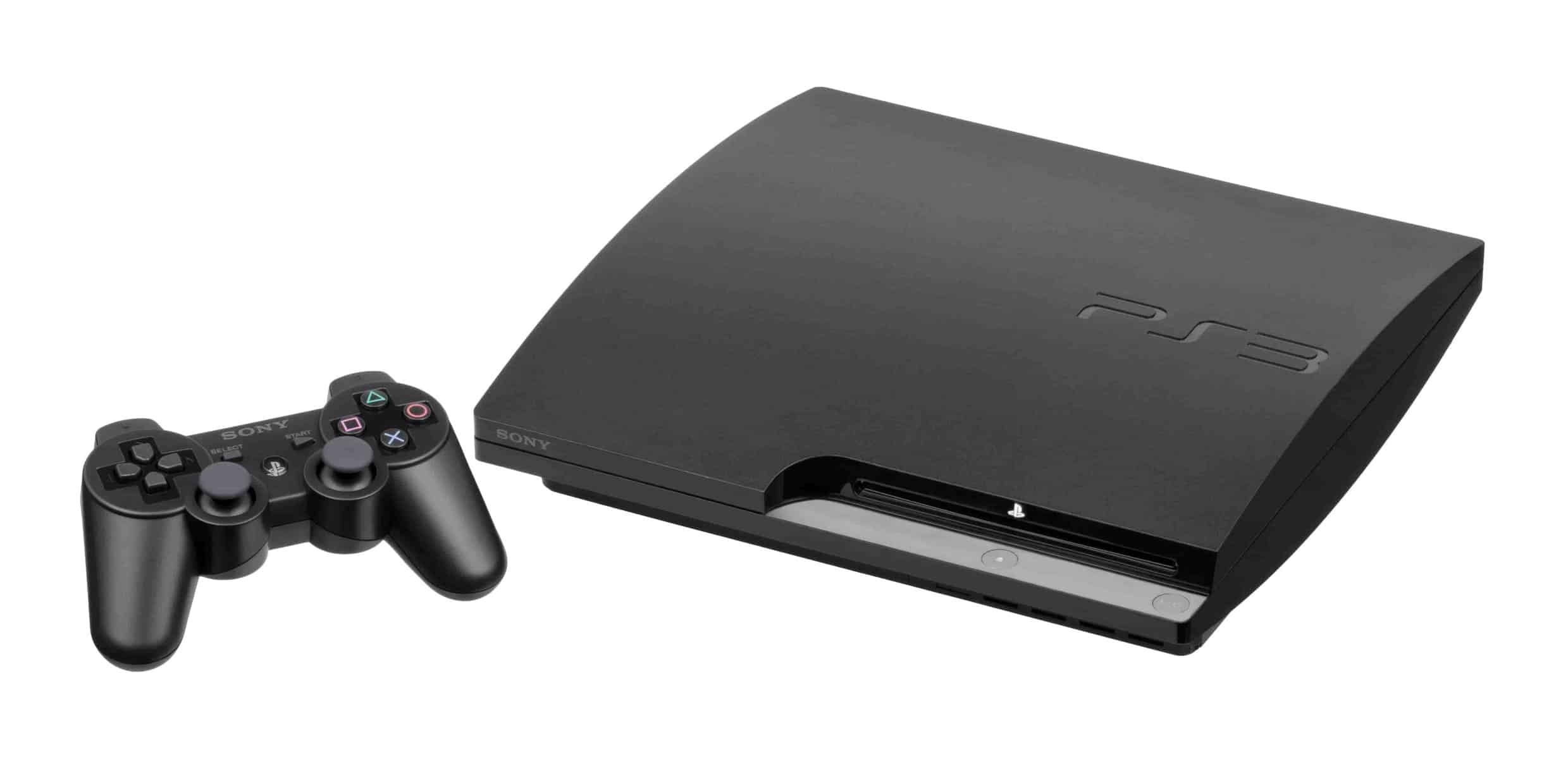
- PlayStation 3 Release Date: November 2006
- Generation: Seventh Generation
- Status: Discontinued
- Release Price: $499
- Units sold: 87.4 million (as of March 31, 2017)
PlayStation 3 was released in 2006, at the time competing primarily with Microsoft’s Xbox 360 and Nintendo’s Wii, belonging to the seventh generation of videogame consoles. It was a console full of firsts. It was the first console to use Blu-ray Disk technology as a means of storage. It was also PlayStation’s first console to integrate social gaming services, including the PlayStation Network. Additionally, it was the first PlayStation console to be controllable from a handheld console.
PlayStation 3 Slim (2009)
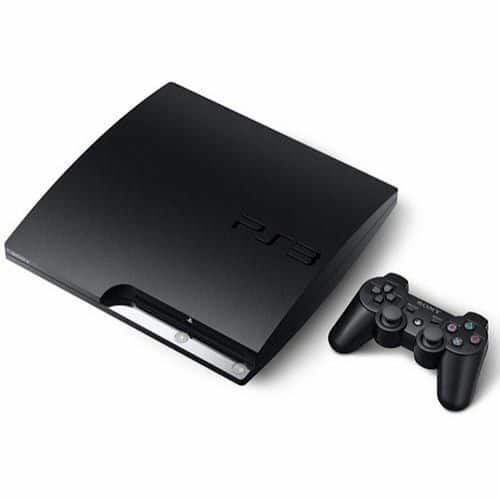
- PlayStation 3 Release Date: September 2009
- Generation: Seventh Generation
- Status: Discontinued
- Release Price: $299
- Units sold: an estimated 16 million
Like PlayStation 2 Slim, the PlayStation 3 Slim was a quieter and lighter model than its predecessor. It also featured a redesigned logo and marketing design, plus minor tweaks to the console’s software. It no longer provided the hardware ability to run PS2 games but was generally a popular console at the time.
PlayStation Vita (2011)

- PlayStation Vita Release Date: December 2011
- Generation: Eighth Generation
- Status: Discontinued
- Release Price: $249.99
- Units sold: an estimated 16 million
The PlayStation Vita was the update to the PSP. With dual analog sticks it bears a striking resemblance to common and popular portable gaming consoles available today like the Nintendo Switch. However, despite the update to technology with the multi-touch touch pad, and improved Memory and RAM, the console was not a major hit. This could potentially be due to the lack of AAA games available to play on the device. When the Vita was discontinued, Sony claimed that they had no plans to develop another handheld console.
PlayStation 3 Super Slim (2012)
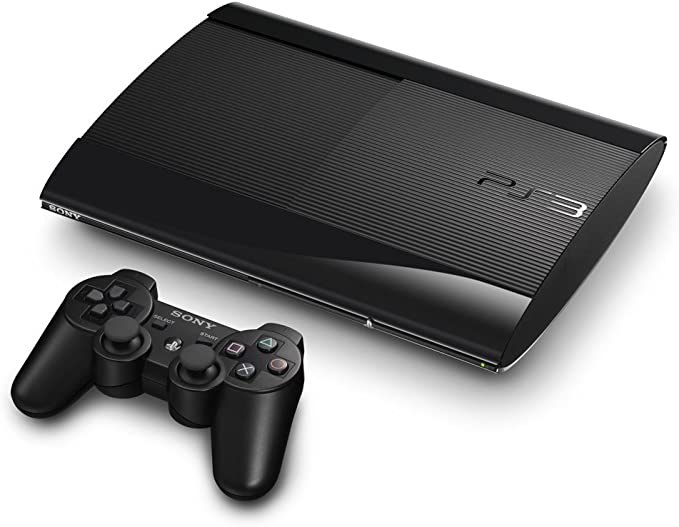
- PlayStation 3 Super Slim Release Date: September 2009
- Generation: Seventh Generation
- Status: Discontinued
- Release Price: $299
Announced at the Tokyo Game Show, the PlayStation Super Slim was available with either a 250GB or 500GB hard drive. The 250GB edition was bundled with the Game of the Year Edition of Uncharted 3: Drake’s Deception, while the 500GB model was bundled with Assassin’s Creed III and released a month later. The Super Slim model was around 25% lighter than the Slim model and featured a manual sliding disc cover instead of a motorized slot loading disc cover.
PlayStation 4 (2013)

- PlayStation 4 Release Date: November 2013
- Generation: Eighth Generation
- Status: Discontinued
- Release Price: $399
- Units sold: 102.8 million
PlayStation 4 represented a new era for Sony as they came out of their struggle during the PS3 years. PS4 would go on to sell a million units in less than 24 hours in North America alone, cementing its ruling status over Microsoft’s Xbox console.
PS4 was defined by lots of exclusives which began arriving in 2015 like Uncharted: The Nathan Drake Collection. Sony also placed an emphasis on social interaction and integration with other devices and services, including PlayStation Vita and the ability to stream gameplay online or with friends. The Console also supported HDR10 and the playback of 4K resolution multimedia.
PlayStation 4 Slim (2016)
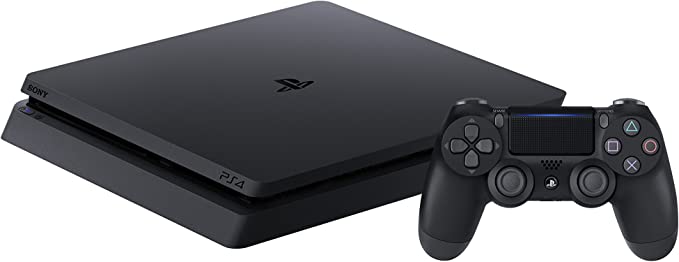
- PlayStation 4 Slim Release Date: September 2016
- Generation: Eighth Generation
- Status: Released
- Release Price: $299
PlayStation 4 Slim is a refreshed version of PS4, boasting to be 30% smaller, 16% lighter and up to 30% more power efficient. Apart from these physical differences, the Slim shares a lot of similarities with PS4.
PlayStation 4 Pro (2016)

General information
- PlayStation 4 Pro Release Date: November 2016
- Generation: Eighth Generation
- Status: Released
- Release Price: $399
Arriving at the time as the Slim, the PS4 Pro features a more powerful GPU, a higher clock rate, and 4K resolution in supported games.
It became Sony’s most powerful console before the launch of PS5. It still comes with the same impressive back catalogue of titles as the standard PS4 and still proves relevant today despite the beastly spec of the PS5.
PlayStation 5 (2020)

General information
- PlayStation 5 Release Date: November 2020
- Generation: Ninth Generation
- Status: Present
- Release Price: $499
- Units sold: 30 million units (December 2022)
Where to begin with PlayStation 5? Its arrival represents a significant leap forward in terms of next-gen gaming, capable of delivering native 4K gameplay. It uses an octa-core AMD Zen 2 CPU, paired with RDNA 2 graphics card and 16GB of GDDR6 RAM. Sony also focussed more on audio with its so-called Tempest Engine tech for more immersive audio effects.
Sony’s latest console also brought the DualSense controller. It provides improved haptic feedback and shoulder triggers, all of which contributed to a more immersive gaming experience. Another bonus is that PS5 is backward compatible with almost all the PS4 games and PlayStation VR games.
PlayStation 5 Digital Edition (2020)

- PlayStation 5 Digital Edition Release Date: November 2020
- Generation: Eighth Generation
- Status: Released
- Release Price: $399
The defining difference between PS5 and PS5 Digital Edition, is that the latter is made without a disk drive. The PS5 Digital Edition therefore only streams content, rather than running them from a CD, DVD or Blu-ray. Other differences are very minor, with the PS5 Digital Edition performing on par with PS5.
PlayStation 5 Slim (2023)
PS5 Slim

Weight
8.94lbs
Processor
AMD Zen 2, 8-core / 16 threads, 3.5GHz
GPU
AMD RDNA 2, 10.3 teraflops, 2.23 GHz
Storage
1TB SSD
- PlayStation 5 Slim release date: November 2023
- Generation: Ninth Generation
- Status: Released
- Release Price: $449
While the specs will largely stay the same, there are a few notable differences PlayStation are introducing with the PS5 Slim. Naturally, the size of the PS5 Slim will be smaller, measuring 96mm x 358mm x 216mm for the disc version. That equates to a 30% reduction in volume, according to Sony’s blogpost. The only other major difference between the two consoles is the PS5 Slim’s 1TB of internal storage, compared to the original console’s 825GB.
PlayStation 5 Pro (2024)
Sony announced a more powerful version of the PS5 on September 10, 2024. The new system is designed to cater for those who do not want to compromise on fidelity when seeking high frame rates. The new console has a number of games that are PS5 Pro enhanced, which will feature improved visuals and performance ovet the standard, base PS5 model.
- PlayStation 5 Slim release date: November 7, 2024
- Generation: Ninth Generation
- Status: Not yet released
- Release Price: $699
